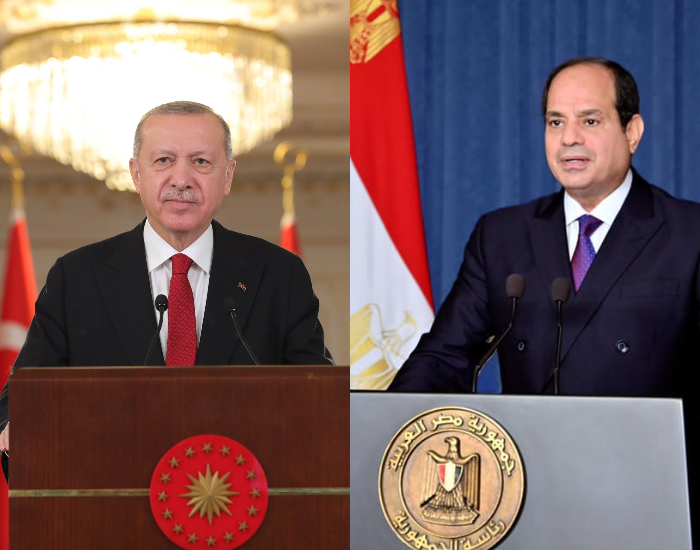What will change on gas (and not only) with the normalization of Egypt-Turkey relations

Turkey and Egypt are trying after many years of frost to normalize diplomatic relations. Facts, insights and scenarios. Michele Scarpa's point
Where Allah has not arrived, gas may arrive.
It is precisely these days that Turkey and Egypt are trying to normalize their diplomatic relations after many years of frost.
At least this is suggested by the recent statements by the Foreign Minister, Mevlüt Çavuşoğlu; “Negotiations take place and continue following a prudent but defined road-map”.
Announcement awaited after the numerous signs of Turkey's opening towards Egypt, especially regarding the thorny issue of maritime borders in the eastern Mediterranean.
In September 2011, the then "Hero of Egypt" , as the Egyptian press headlined for the visit of the Turkish Prime Minister , Recep Tayyip Erdogan, arrived in Cairo, the first stop on a tour that touched Tunisia and Libya. He wanted to ride the movement of the Arab springs in an attempt, which was then unsuccessful, to set himself up as a model of reference for the Islamic world in search of a new political order.
Erdogan tried again in 2012. He was the sponsor of the rise to power of President Mohammed Morsi, an exponent of the Muslim Brotherhood then linked to the AKP party of the Turkish president. He saw the possibility of becoming the strong partner in the Turkish-Egyptian relationship by trying to exploit shared religious values.
The dream of an Islamic brotherhood in the shadow of a neo-Ottoman Turkey ended in 2013, when a military coup in Egypt overthrew the current government of President Morsi. Erdogan repeatedly expressed his support for the deposed government, trying to delegitimize the authority of the coup military at the international level. Such was his pressure and so virulent his stance that Cairo declared the Turkish ambassador "persona non grata". This expulsion was followed by the retaliation of Ankara with the removal of the Egyptian ambassador. Since then diplomatic relations between the two countries have been interrupted. A wall-to-wall situation that has brought the battleground to all the crisis zones of the area.
The main matches that have seen the two states oppose are the Libyan one and the energy one. In Libya, the two countries came to loggerheads as respectively allies of the two contenders: Turkey with the internationally recognized government of Tripoli while the Egyptians in support of Benghazi. In the Libyan sands, Turkish interference has raised the tension to the point of threatening Egypt with military entry into Cyrenaica in the event of the conflict developing excessively in favor of the Tripoli government.
The greatest front of tension between the two countries, a front that also involves Italy, is the eastern Mediterranean area, where large gas fields have been found, also thanks to Eni surveys, for a total of about 2,100 billion of m³. The Italian group has discovered the 850 billion m³ Zohr offshore field in Egyptian waters and has numerous licenses that see it actively involved in Cypriot waters. And Cyprus is precisely the reason for the Turkish dispute.
The Eastern Mediterranean gas game is as important as it is complex, in fact these fields are shared between Israel, Cyprus and Egypt. These from energy-intensive countries thanks to these discoveries would even become energy exporting nations.
In 2019 Egypt together with Cyprus, Greece, Israel, Jordan, Palestine and Italy gave rise to the Eastern Mediterranean Forum, the aim is to coordinate energy policies in the area (in particular infrastructure and prices). Turkey found itself excluded from a fundamental energy match. He tried to re-enter it with different legal tricks, such as the agreement on the exclusive economic zone with Libya and the defense of the waters of Northern Cyprus (an area occupied by Ankara in 1974 which declared itself an independent republic recognized only by Turkey).
Turkey's objectives in the area are therefore three: to block the EastMed (gas pipeline that would connect Mediterranean gas directly to Italy) by strengthening the relationship with Libya, also by sending troops to this country.
Hinder foreign explorations in Mediterranean waters, as in the case of the Italian ship of Saipem 12000 which was supposed to conduct explorations off the coast of Cyprus.
Pursue the Mavi Matan or Patria Blu, which is Turkey's new strategic vision to become a maritime power in the Mediterranean.
For its part, Egypt reacted by agreeing with Greece on the demarcation of the maritime borders in the eastern Mediterranean and strengthening relations with France (which has large energy and industrial interests in the area and which has taken on a policy particularly adverse to Turkey) .
This tangled situation now seems to be at a turning point: the reopening of dialogue between the two countries can open unexpected scenarios in the conflict areas of the region.
The words of Çavuşoğlu ("We have had contacts both at the level of intelligence and at the foreign ministry. The contacts at the diplomatic level have begun") make it clear that the interests deriving from gas would be more effective than that vision had many years ago by Erdogan of Arab and Islamic world that had divided them.
This is a machine translation from Italian language of a post published on Start Magazine at the URL https://www.startmag.it/energia/che-cosa-cambiera-su-gas-e-non-solo-con-la-normalizzazione-dei-rapporti-egitto-turchia/ on Sat, 13 Mar 2021 09:39:55 +0000.
